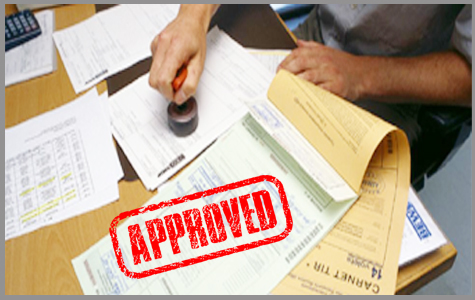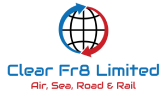Guidelines for Importing Pharmaceuticals to the UK: What You Need to Know
Essential UK Pharmaceutical Import Regulations
When it comes to importing pharmaceuticals to the UK, it is crucial to adhere to strict regulations and documentation standards. These measures are in place to guarantee the safety and effectiveness of medical imports. Navigating the process of importing pharmaceuticals requires a comprehensive understanding of the essential UK import regulations. By complying with these regulations, importers can ensure that medical products meet the necessary standards for distribution and use within the UK.
Documentation Essentials for Medical Imports
When it comes to importing pharmaceuticals into the UK, there are essential documentation requirements that must be met to ensure compliance with regulations and legal standards. Understanding and fulfilling the necessary paperwork and documentation is crucial for a smooth import.
Regulatory Documentation Requirements
Compliance with regulatory documentation requirements is vital for importing pharmaceuticals into the UK. This includes providing detailed information about the pharmaceutical products being imported, their intended use, safety data, and any relevant clinical trial data. Ensuring that all regulatory documentation is complete and accurate is essential to meet the standards set forth by UK authorities.
Import Licensing Procedures
Importing pharmaceuticals into the UK also involves navigating through licensing procedures. Obtaining the required licenses plays a crucial role in ensuring adherence to legal requirements and quality standards. Importers need to be well-versed in the specific licensing procedures for pharmaceutical imports, including obtaining permits from relevant regulatory bodies and demonstrating compliance with quality control measures.
Quality Standards for Pharmaceutical Imports
When importing pharmaceuticals to the UK, it is essential to ensure compliance with the stringent quality standards set by the country. Meeting these standards is imperative to guarantee the safety and effectiveness of medical products within the UK market.
Compliance with UK Quality Standards
Adhering to the UK's quality standards is a fundamental requirement when importing pharmaceuticals into the country. It ensures that the imported medical products meet the necessary criteria for safety, efficacy, and quality.
Quality Control Measures
Implementing stringent quality control measures is crucial for maintaining the integrity of pharmaceutical imports into the UK. This involves rigorous testing, inspection, and documentation processes to uphold the highest standards of quality and safety in accordance with UK regulations.
By complying with these quality standards and implementing robust quality control measures, importers can demonstrate their commitment to providing safe and effective pharmaceutical products to the UK market while ensuring patient safety and well-being.
Legal Compliance for Pharmaceutical Imports
Adhering to import regulations is a critical aspect of ensuring legal compliance when importing pharmaceuticals into the UK. Importers must meticulously follow the established guidelines and requirements to avoid any legal repercussions. By adhering to these import regulations, importers can demonstrate their commitment to upholding the highest standards of safety and efficacy in the pharmaceutical products being brought into the country.
Customs and Border Control Procedures
Understanding customs and border control procedures is vital for navigating the legal aspects of importing pharmaceuticals to the UK. This involves complying with customs regulations, accurately declaring imported pharmaceutical products, and facilitating necessary inspections. Importers need to be well-informed about the specific procedures at customs checkpoints and border control points to ensure a smooth and legally compliant import process.
Comprehensive Import Guide for Pharmaceuticals
When it comes to importing pharmaceuticals into the UK, having a comprehensive import guide is essential for a smooth and successful process. Navigating the import process involves understanding the various steps and requirements involved in bringing medical products into the country.
Navigating the Import Process
Understanding the intricacies of the import process is crucial for ensuring compliance with UK regulations. This includes familiarising oneself with documentation requirements, licensing procedures, and quality standards. Importers need to have a thorough understanding of customs and border control procedures to facilitate a legally compliant import process. Additionally, being aware of any specific regulations or restrictions related to certain types of pharmaceutical products is vital for navigating the import process effectively.
Risk Assessment and Mitigation
Conducting a comprehensive risk assessment is an integral part of importing pharmaceuticals into the UK. This involves evaluating potential risks associated with the imported products, transportation, storage, and distribution. Implementing effective mitigation strategies based on the findings of the risk assessment is crucial for addressing and minimizing potential challenges or hazards that may arise during the import process.
By carefully assessing risks and implementing appropriate mitigation measures, importers can enhance the safety and effectiveness of pharmaceutical imports into the UK while ensuring compliance with regulatory standards.
Navigating Pharmaceutical Imports into the UK
Successfully managing the import of pharmaceuticals into the UK hinges on strict adherence to regulations and a comprehensive grasp of the import process. Importers must navigate through a myriad of documentation requirements, quality standards, and legal compliance procedures to ensure the safe and effective entry of medical products into the UK market.
Conducting a thorough risk assessment is crucial for addressing potential challenges associated with importing pharmaceuticals into the UK. By implementing effective mitigation strategies based on the findings of the risk assessment, importers can enhance the safety and efficacy of pharmaceutical imports while complying with regulatory standards.
DOCUMENT REQUIREMENTS
- Certificate of Origin
- Bill of Lading
- Packing List
- Commercial Invoice
- Customs Clearance

